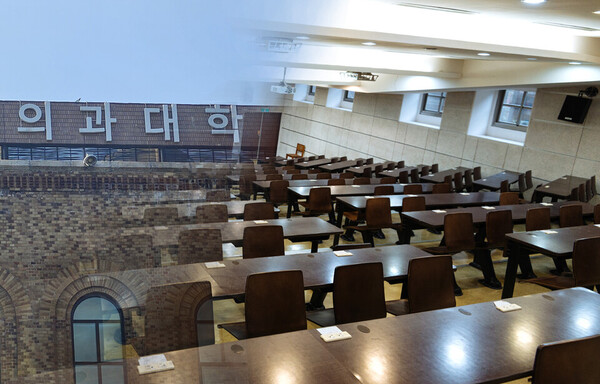Medical students are returning to school after more than a year of disruption caused by ongoing conflict between the medical community and the government. Many have issued public apologies in a show of humility and a desire to resume their studies and restore trust within their academic communities.
On Monday, the emergency committee of Pusan National University College of Medicine informed professors and staff of the students’ return, expressing regret for “causing considerable concern” and gratitude for efforts made to resume classes. The statement, sent via email, also thanked the school’s leadership and faculty for supporting the students’ re-entry.

“The difficult period that weighed on all of us has come to an end, and students are returning to the classroom,” the committee wrote. “We are grateful to the dean and professors for their tireless efforts to help us reclaim our place in school.”
The statement acknowledged the damage done to relationships within the school and emphasized the importance of rebuilding trust. “We recognize that the trust among members of the school community has been significantly affected,” it read. “We hope to heal these wounds and move forward together with mutual respect.”
Students also pledged to recommit to their responsibilities. “We will fulfill our duties as medical students and grow into professionals who serve society with integrity and compassion.”
Pre-med students at the school resumed classes on July 22, and main-course students are scheduled to return next Monday.
At Inha University College of Medicine, the student council released a similar statement last Friday titled “Statement on the Return to Classes by Medical School Class Representatives.” Signed by class representatives and student council leaders, the letter conveyed deep remorse.
“We apologize for not responding to the many chances and support offered by the school and fellow students,” it said. “We are deeply grateful for the opportunity to return and regret having betrayed the trust of our professors during our absence.”
The council also acknowledged the feelings of students who had already returned. “We understand that our return may not be welcomed by all, but we’re grateful for your understanding. We will not tolerate any harm directed at returning students.”
“We know this opportunity may be seen as special treatment,” the statement continued. “But as members of Inha University, we will remain humble and committed to our studies. We will respect others and strive to serve the vulnerable as future physicians.”
Before students issued their apologies, the broader medical community also expressed regret. On July 12, when all medical students nationwide announced their return, Korean Medical Association (KMA) President Kim Taek-woo said, “Over the past year and five months, the public has endured unimaginable fatigue and pain. We deeply empathize with that suffering and sincerely apologize.”
The Korean Medical Student Association’s emergency committee also expressed regret that same day and officially disbanded on July 30 following the resignation of its leader.
The Korea Intern Resident Association (KIRA) followed suit. At a meeting with the Korea Alliance of Patient Organizations on July 28, KIRA emergency committee head Han Sung-jon said, “We apologize to the public for the inconvenience and anxiety caused by the prolonged medical-political conflict.”
Related articles
- Professors demand state action to repair Korea's medical education system
- Medical professors are at a loss over unprecedentedly condensed classes
- Medical licensing exam applicants triple but still trail pre-conflict levels
- [Column] Time to weed out the bad apples – doctors who have become a public eyesore
- Medical students' parents blast schools for forcing 'written oath' on returnees
- Government allows resigned junior doctors to resume residency without quota limits
- KMA apologizes to public for hardships, vows to restore healthcare system
- Illegal cram school ads fuel elementary-level med school prep craze
- Patient group says Korea’s parallel drug review pilot delivers ‘little real-world benefit’

